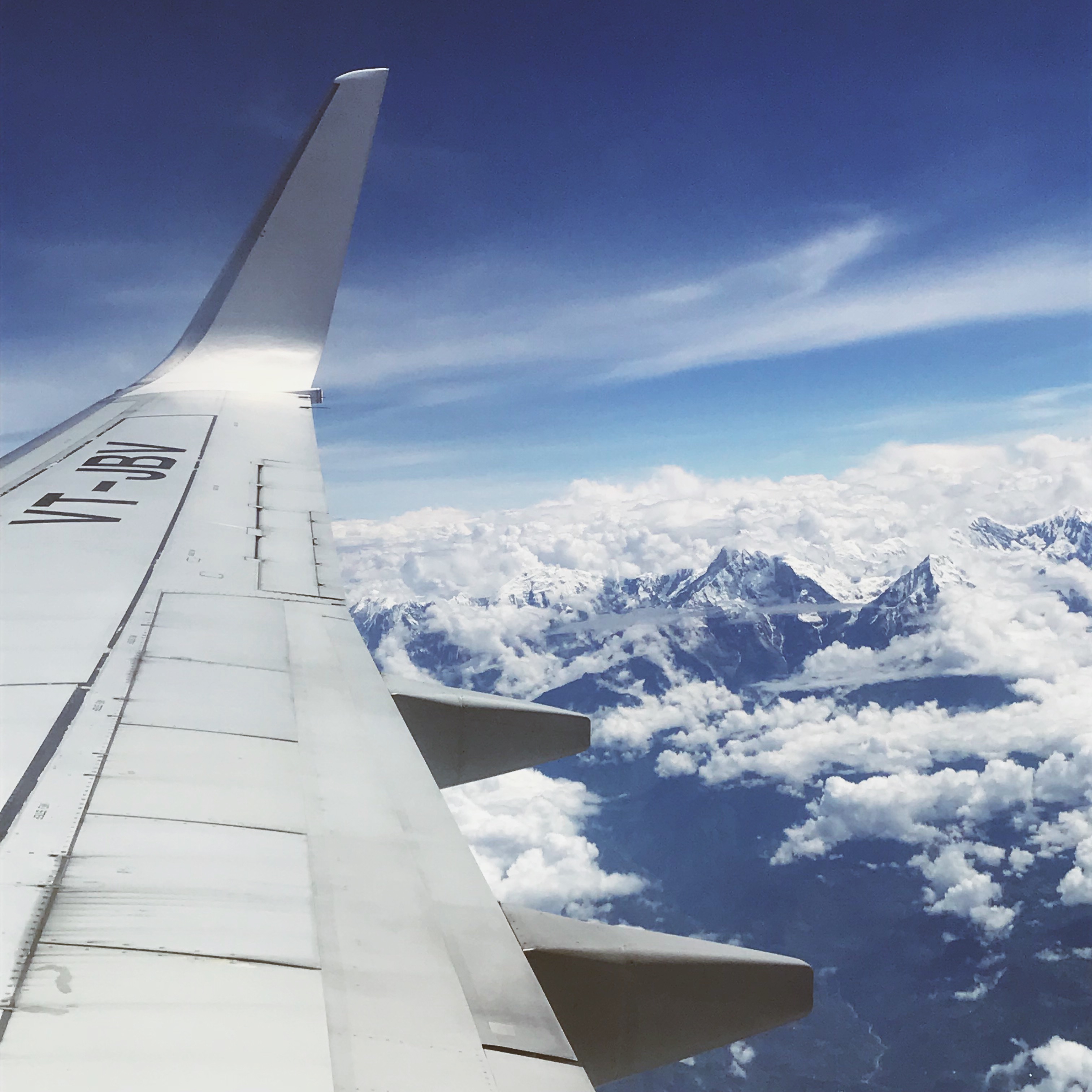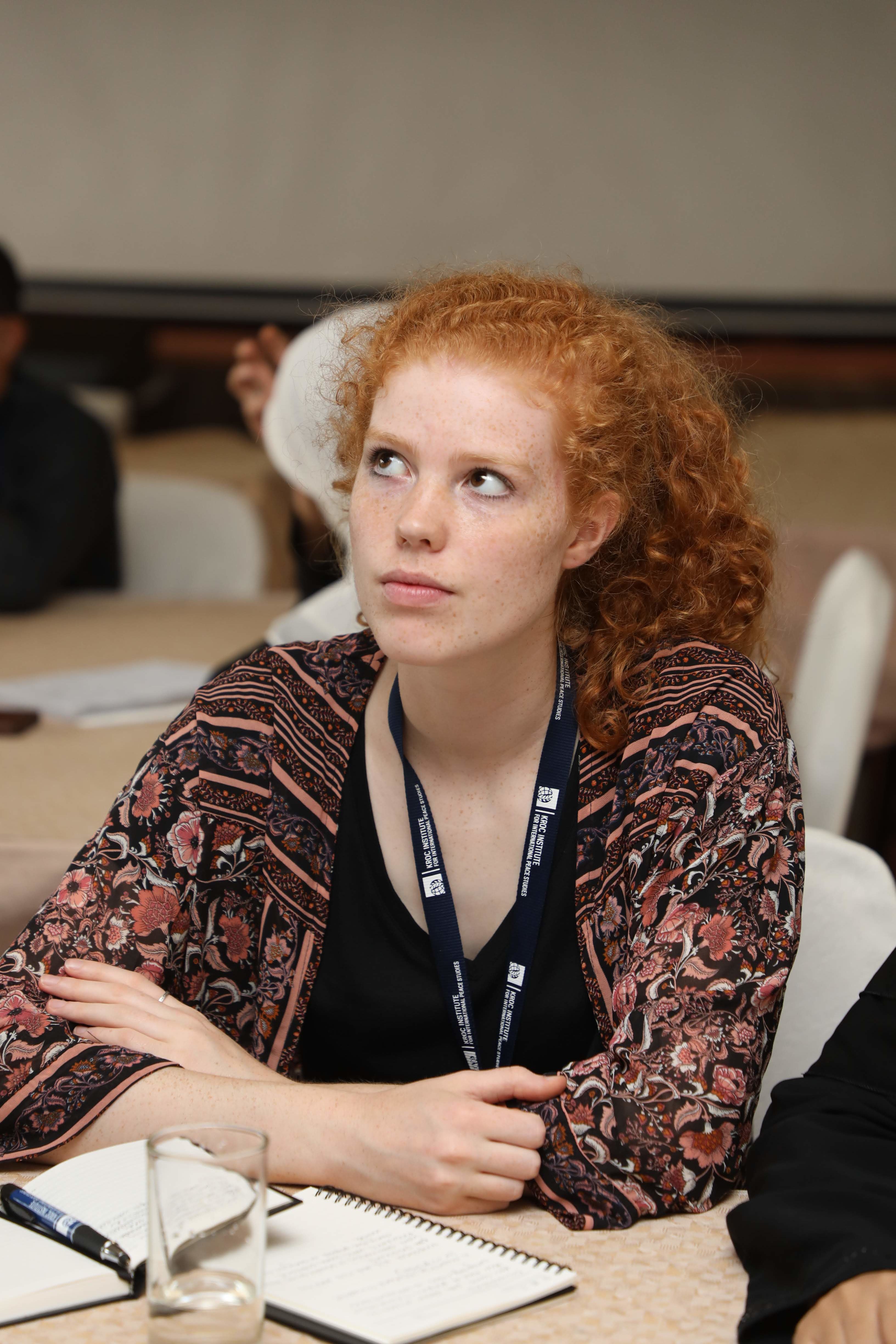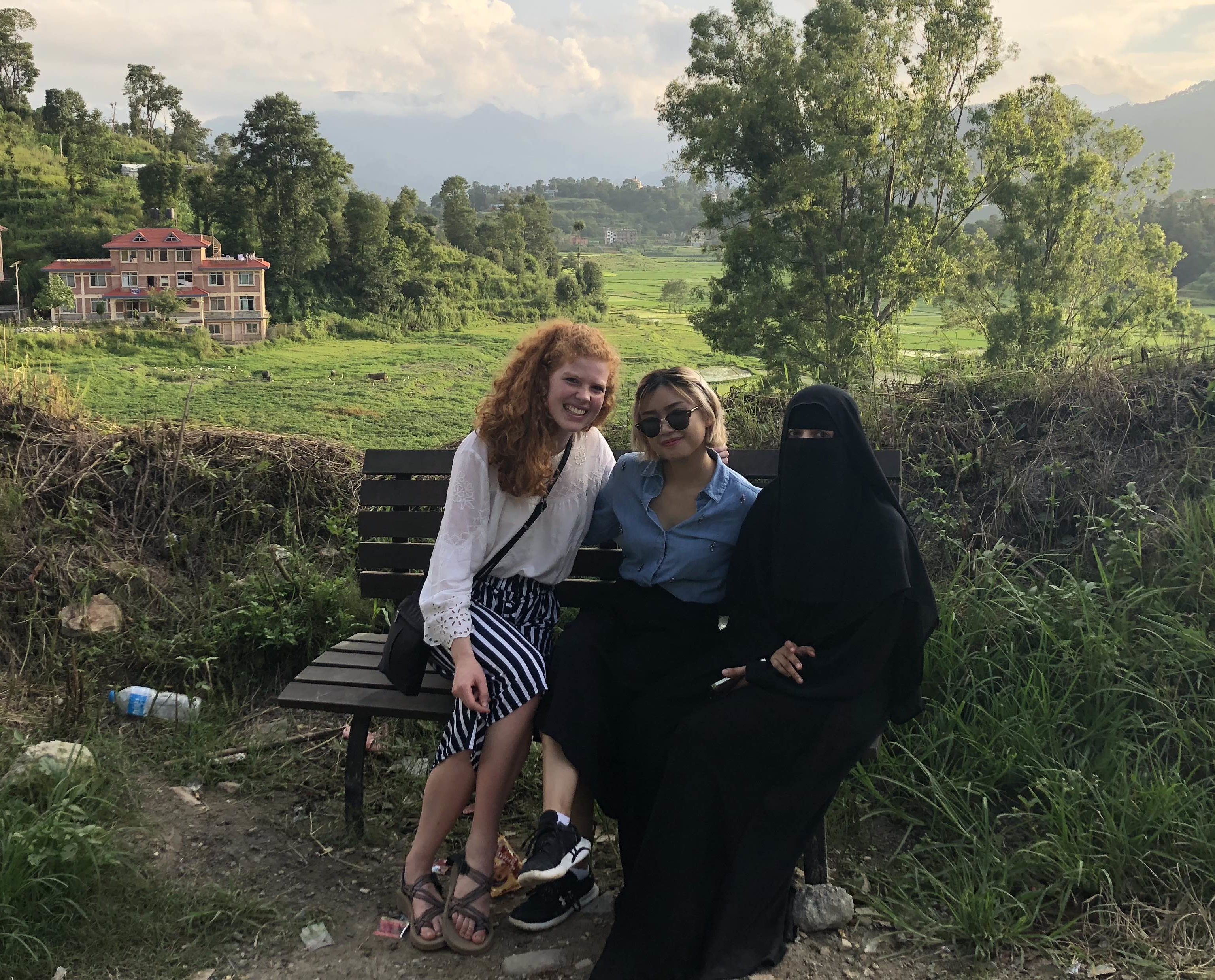
Unlike the six other undergraduate students attending the Madrasa Discourses program from the University of Notre Dame, I did not have to suffer a long flight to get to Nepal, or struggle with jet lag upon arrival. I spent the month before the program just next door in India conducting research at the Indian Institute of Science. Even though the United States prides itself on its diversity, India has a depth of religious diversity that I have never experienced before. Every time I left campus in Bangalore, I passed at least three temples; each day in the lab I heard the mosque’s regular call for prayer, and from my window I could see the light of a cross at the top of a nearby church. Not to mention the Jain menus and the Buddhist monks I also encountered. My curiosity was piqued by the many new traditions. However, before leaving for Nepal, I expressed a concern to one of my closest friends. Despite the religious diversity I was experiencing, there was one thing that still caught me off guard every time: seeing a woman in a burka.
I knew my discomfort was a product of years of exposure to both explicit and subtle Islamophobic sentiment, but even though my mind knew this, my subconscious couldn’t shake its fear of the unknown. As the great granddaughter of a Syrian refugee, who fled from Damascus because his Christian faith was not tolerated by his Muslim community, I have always had doubts about my ability to be accepted by devout followers of Islam. Growing up in a post 9/11 era, the association of Islam to terrorism in the media, along with the offhand comments of adults at the grocery store or dinner table, only cemented my doubts and fears. While I later learned about Islam as a peaceful religion, it was hard to erase these early impressions from my subconscious mind.
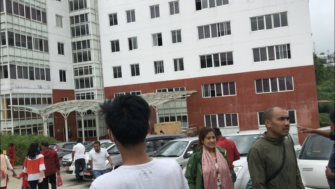
The first time I met my roommate from Pakistan, Haya, was at one o’clock in the morning on the day of our arrival in Nepal, five minutes before I threw up. Having gotten sick during a brief trip to Mumbai, I was certainly not the cheery face one might hope to see on their roommate of the next two weeks. In my miserable and nauseous state, even my subconscious didn’t have the ability to question or fear the veiled woman who was asking me if I was okay and if there was anything I needed. After falling asleep, still feeling as sick as ever, I had a terrible nightmare. Apparently, under the stress of illness and a new location, I sleep talked in my dream, yelling “Who’s there? Who’s coming?” in the middle of the night. While I have no recollection of this, Haya informed me in the morning of the terror I had caused her. This series of events was probably one of the worst first impressions I have ever offered. In spite of all this, I began to form a strong bond with my roommates, Haya and Meilin (another Notre Dame student).
At first it was difficult for me to tell the women in burkas apart when we sat in large group sessions, not being used to such intricate facial recognition. After a couple of days and a some experiences apart from the men, where the women uncovered their faces and I saw their full smiles, I was able to recognize those same smiles reflected in their eyes. I began to recognize the beauty, honor, and dignity of these women, and to understand their individual personalities.
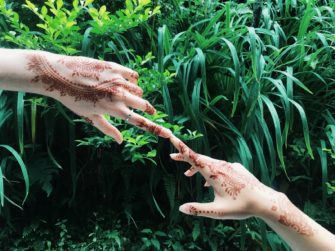
One day I noticed a pin on Haya’s purse that said, “I don’t care” with a winking girl dressed in a burka. I laughed out loud because the pin represented so well the sassy and spirited personality of my new friend. The three of us giggled together telling stories, went on hikes together, went shopping together, ate meals together, sat on the bus together, and did all other manner of friendly things together. We shared snacks, rosewater, and stories. On one of the last nights, we took a walk to the store to get snacks and Haya picked up some henna to do for Meilin and me. Not only was this woman an incredible participant in Madrasa Discourses and a Quranic instructor to hundreds of people (for which she received an award from the President of Pakistan); she was also an amazing henna artist.
On the last day of the program, Haya convinced Meilin to try on one of her outfits and then wear it to the session. Sharing clothes like this was a beautiful moment of friendship and solidarity. Instead of focusing on the division of our different styles, we were unified as women who are not defined by what we might wear. It was also a fun way to trick Professor Moosa into momentarily believing there was a new student in the program.
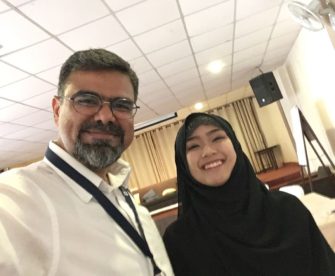
As I was boarding the plane back to India, I noticed a woman wearing a burka sitting in row 17. I quickly checked my boarding pass with the hope that I was sitting next to her (sadly, I was not). This was the moment when I realized that my subconscious feeling of fear had been replaced with subconscious feelings of friendship and understanding.
The theological questions addressed by Madrasa discourses changed the way that I consciously think about Islam. They deepened my understanding of Islamic law, history, and teaching. They even changed the way I think about Christianity and its relation to the modern world. The discussions made me think about the Bible in the context of the time it was written, rather than as a universal text to be applied literally over all time. It was refreshing to know that religion does not have to remain stagnant, it can grow alongside our developing world. For me, these thoughts were revolutionary for my worldview. However, the friendships I built at Madrasa Discourses did something even more revolutionary. They changed the much more deeply rooted subconscious thoughts and attitudes I had towards Muslims, particularly Muslim women. This is something that no class, no book, and no effort of my own could have done. I left Nepal with the incredible gift of friendship with those I used to fear I might never understand.
